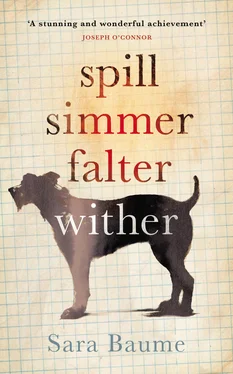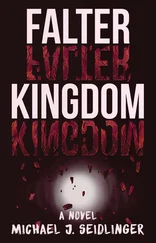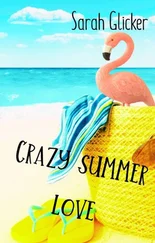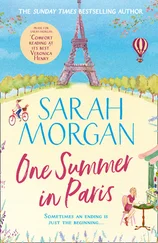See how sluggish the spring is this year. Almost May and still no sign of swallows. Look here, see this lump of flaky mud wedged into the roof cranny? It’s a nest and has hatched ten generations at least. They fly all the way from South Africa, across the Sahara and the Pyrenees, just to lay their dappled eggs in my cranny. Every year they remember me, and come back. But sometimes swallows go hungry and sometimes storms knock them down and sometimes they just can’t bear the slog, and stop.
When I was a boy, the seasons seemed to exist more than they seem to exist now. For the past ten years at least, all year round, the meteorologist who reads the weather forecast has always said the same thing, and the picture at the end has always showed the same symbol. A raining cloud with a very small sun shying behind it. There haven’t been any intensities of hot and cold or light and dark; instead it’s been the same glum, tepid day over and over, and it’s made me feel similarly seasonless. Apathetic when I should have been elated, drowsy when I should have been upset. Then, out of the blue, last winter grew tremendously cold. The meteorologist said there were the lowest temperatures for half a century. It put paid to my theory of seasonlessness, but not in exactly the way I wished for.
Unless I succumb to one of those brain-eating illnesses of very old age, I don’t expect I’ll forget last winter. Now it’s spring again, see how the cold has delayed all the seedlings from sprouting, stripped the hedgerows to a tangle of naked brown, worn the country roads into scree. So many bulbs remain scrunched in their shallow graves. The hibernating animals oversleep. Where were you last winter? I find it hard to picture a time when we were simultaneously alive, yet separate. Now you are like a bonus limb. Now you are my third leg, an unlimping leg, and I am the eye you lost.
Do you think my swallows somehow sense how cold our winter was? If they know the way here from Africa, they must know other impossible things as well. Do you think they’re breaking their flight on the continent, gorging themselves on sun-warmed flies? It’s not too late, they might still be coming. Maybe, like the spring, my swallows are just overdue.

It’s Tuesday, my Tuesday trip to town. The postmaster remarks how nippy it is and I say Sure you’d never know one minute from the next what’s coming. The jumble shop has a set of Russian dolls and a brocade bag tied to the blade of a Samurai sword in the window, and I wonder what’s inside the bag, I wonder is it an amulet. But I must pass by and stop again at the pet shop. I fish about in the collar and leash section for a muzzle that looks like it will fit. I don’t hear the gerbil. Today, the gerbil is calm; the gerbil is safe.
At home, I tell you SIT. This is the first of your sixty-five words and so you sit and I begin to fasten the straps and buckles around your head and neck. I promise it’s not for always and everywhere, okay? Just certain places and situations to protect you, to protect us both. I promise.
You trust me enough to let me fix it on without a fidget of protest. I see how you trust me and I feel terrible that I use this trust to constrict you. Once the muzzle is on, the weight of the moulded plastic grill draws your neck down and you hang your nose, more sad than angry. At first you just sit motionless with your head hung. Gradually, you begin to panic. Now you thrash and claw at the muzzle, now you growl as though it were an enemy creature. And I feel immediately terrible terrible terrible, and free you. I hang the muzzle on the apron hook in the kitchen.
It’s gone now, see? We will not speak of it again.

There’s only one road in the village where nobody lives. It runs up the hill and past the oil refinery. About a hundred yards along there’s an enormous signboard. It stands supported by two steel legs and wears a red bulb like a miner’s helmet atop its litany of instructions. DO NOT PASS THIS POINT WHEN LIGHT IS FLASHING the signboard says, PROCEED TO NEAREST SHELTER & WAIT FOR REFINERY PERSONNEL TO ASSIST YOU. This is the road where we’ll walk now, the dimmest and most deserted, the best chance we have of being left alone.
The ditches give way to forest either side. The oak and ash and hazel and birch form an unwieldy guard of honour. They’re so tall their heads incline toward one another and meet in the middle, leaving only a thin, jagged opening into sky. The forest floor is knotted by briars and ferns. On one side it gives way to the refinery compound. On the other it casts off into a small expanse of cliff face, and now sea. Listen to the blackbird bug-hunting beneath the celandine, to the tap of the mussel dropped by a hooded crow against the tarmac. Now he swoops down for his seashell and lifts and drops it again, and so on until it’s cracked enough to sup out the soupy innards.
Step aside for the contract builder’s van. Now the refinery mini-digger, its bucket of sandbags. Sometimes there’ll be cargo lorries on their way to the refinery with gas cylinders for refilling, and sometimes they’re on their way from the refinery with gas cylinders freshly filled. Listen to them clinking against one another with the bumps in the tarmac, the sway of the axles. The road ends at the staff car park, at an intercom beside a traffic barrier. But we don’t stop here, this is just the point at which we go off-road. Follow me over the hedge and through the mud prints of tractor tyres to the brow of the barley field, the top of the hill. Here we stop and here we look back across the space we’ve just trampled. The chimneys are sputtering sparky smoke into the morning, the refinery wind sock is jimmying about, and beyond again, see the whole of the bay all at once like a blue puddle, the village like a group of dollhouses, and my father’s house in the middle, a bold pink speck amongst the beige. See the green sprouts in the gutters? I love the way the grass grows like that, high up on buildings, as though it’s lost. And on the other side, see Tawny Bay sprawling below.
Now follow me down slope, through the ferns and furze, to the beach. Here at sea level, the grass turns sharp and straggly. It gives way first to an uneven row of hefty pebbles, desiccated bladderwrack, drift junk, and now sand. Have you ever seen a beach before? I don’t expect so. What do you make of it? The sea’s a kind of river but instead of flowing sideways against an opposite piece of land, it rushes on and bleeds into sky. Here’s the sand you’ve already found dispersed about the car blanket, now it’s truly everywhere, spread into bumps like the crunchy kind of peanut butter. In some places it’s freckled with heavy stones, in others it collapses beneath your paws. Smell the rot and fish and tang and wet. Feel the air zinging your eyeball. Taste the salted spray of cresting waves on the buds of your lolling tongue.
There’s no one else on the strand. It’s too early. So I’m going to take a chance. I’m going to unclip your leash, unshackle your harness. I’m going to let you chase and rove and zig-zag feverishly, to be your own unhuman and unprogrammable self, free as a fart.
‘FREE!’ I yell. And you run amok between the pebbles and shallows and cliffs and caves, over the lug’s extruded trails and the seagull’s beak punctures. You’re chasing the oystercatchers, licking beached jellyfish, guzzling crab’s legs and pissing in the dunes. You’re moving in a way I’ve never seen you move before. Slack-limbed, almost jaunty. You wag your tail. This is the first time I’ve seen you wag your tail.
‘GOOD BOY!’ I yell.
Читать дальше













